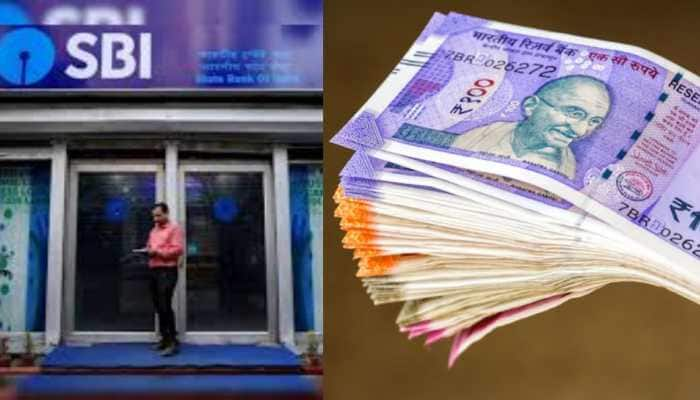How is a Pope Elected?
Historically, there were three ways of electing a Pope. However, the Church has now done away with two traditional methods.
Trending Photos
)
 Akrita Reyar
Normally, the exercise to elect a Pope is undertaken after the current Pontiff passes away. But exceptional circumstances like the resignation of Pope Benedict XVI have created a vacuum that needs to be filled. The nature of the vacancy is peculiar, as it is the first time in 600 years that a Pope has chosen to step down, the last such case being of Gregory XII in 1415.
Historically, there were three ways of electing a Pope. However, the Church decided to do away with two traditional methods and only election through the Conclave method has endured.
The Latin word Conclave literally means "locked with the key", which is what exactly happens. First, the Dean of the College of Cardinals summons all the Cardinals from across the world to Rome to take part in the secret election process and explains to them at length the procedures as defined by the Canon law.
As of now, there are a total of 203 cardinals representing 69 countries. Of these only 120 are eligible, as all cardinals over the age of 80 are excluded as per a change of rule in 1975.
In fact currently, even the Dean of the College of Cardinals Angelo Sodano is over 80, so his next senior most cardinal-elector has stepped in to shoulder the responsibility.
After the methodology has been clarified, discussions take place in strict secrecy about the merits of likely candidates. Members older than 80 years also take part in this debate.
The cardinals are then sealed in the Sistine Chapel where the voting takes place, every morning and afternoon. Until the election is complete, the cardinals are not allowed to speak to or interact with anyone outside of the Conclave.
The entire Sistine Chapel is inspected by security personnel to ensure that the area does not have any hidden microphones or cameras. All communication devices including radio, television and mobile phones are banned.
The cardinals also eat and sleep within the closed-off areas and do not have access to even newspapers and magazines.
A total of two-thirds majority is needed for the clear election of a Pontiff. Due to the highly politicised setting of the church, this is by no means an easy task and a lot of politicking does take place in reality in the echelons of the Vatican.
To find an easier way out, Pope John Paul II had amended rules to allow for election through a simple majority of 50% + after seven rounds of voting; however, incumbent Pope Benedict XVI had reverted to the old method of 2/3rd numbers for validating a new Pope, possibly in the hope of building a consensus on the name of a candidate rather than a pragmatic but cold method of simple majority used by politicians.
As far as the real election procedure is concerned, each cardinal is given a rectangular card on which he writes his choice. He then drops this ballot which is folded at the centre into a chalice that is placed at the altar.
The cardinals continue to vote until a clear winner emerges. If by the end of the third day there is still no clear mandate, the Conclave breaks for a day for prayer and deliberations, and is also sometimes sermonised by a senior cardinal to build consensus and clarity.
After each round of voting, the ballots are burned to indicate whether the Conclave has reached a conclusion. If no clear choice has emerged, then a special chemical is added while burning which creates black smoke, indicating to the crowds waiting in St Peter’s Square that they still have some waiting to do before the new Pontiff is announced.
If the voting throws up a winner, then no chemical is added to ballots while burning which means only white smoke emanates from the chimney, indicating that the College of Cardinals has elected the new Pope.
The only two qualifications needed to be entitled to be a suitable candidate for being a Pope is that you have to baptized and a male. There have been occasions in the history of the church when a baptized person was elected Pope and only after that ordained a bishop!
In that sense, you need to be more qualified to be able to vote than to ascend to the papacy.
Akrita Reyar
Normally, the exercise to elect a Pope is undertaken after the current Pontiff passes away. But exceptional circumstances like the resignation of Pope Benedict XVI have created a vacuum that needs to be filled. The nature of the vacancy is peculiar, as it is the first time in 600 years that a Pope has chosen to step down, the last such case being of Gregory XII in 1415.
Historically, there were three ways of electing a Pope. However, the Church decided to do away with two traditional methods and only election through the Conclave method has endured.
The Latin word Conclave literally means "locked with the key", which is what exactly happens. First, the Dean of the College of Cardinals summons all the Cardinals from across the world to Rome to take part in the secret election process and explains to them at length the procedures as defined by the Canon law.
As of now, there are a total of 203 cardinals representing 69 countries. Of these only 120 are eligible, as all cardinals over the age of 80 are excluded as per a change of rule in 1975.
In fact currently, even the Dean of the College of Cardinals Angelo Sodano is over 80, so his next senior most cardinal-elector has stepped in to shoulder the responsibility.
After the methodology has been clarified, discussions take place in strict secrecy about the merits of likely candidates. Members older than 80 years also take part in this debate.
The cardinals are then sealed in the Sistine Chapel where the voting takes place, every morning and afternoon. Until the election is complete, the cardinals are not allowed to speak to or interact with anyone outside of the Conclave.
The entire Sistine Chapel is inspected by security personnel to ensure that the area does not have any hidden microphones or cameras. All communication devices including radio, television and mobile phones are banned.
The cardinals also eat and sleep within the closed-off areas and do not have access to even newspapers and magazines.
A total of two-thirds majority is needed for the clear election of a Pontiff. Due to the highly politicised setting of the church, this is by no means an easy task and a lot of politicking does take place in reality in the echelons of the Vatican.
To find an easier way out, Pope John Paul II had amended rules to allow for election through a simple majority of 50% + after seven rounds of voting; however, incumbent Pope Benedict XVI had reverted to the old method of 2/3rd numbers for validating a new Pope, possibly in the hope of building a consensus on the name of a candidate rather than a pragmatic but cold method of simple majority used by politicians.
As far as the real election procedure is concerned, each cardinal is given a rectangular card on which he writes his choice. He then drops this ballot which is folded at the centre into a chalice that is placed at the altar.
The cardinals continue to vote until a clear winner emerges. If by the end of the third day there is still no clear mandate, the Conclave breaks for a day for prayer and deliberations, and is also sometimes sermonised by a senior cardinal to build consensus and clarity.
After each round of voting, the ballots are burned to indicate whether the Conclave has reached a conclusion. If no clear choice has emerged, then a special chemical is added while burning which creates black smoke, indicating to the crowds waiting in St Peter’s Square that they still have some waiting to do before the new Pontiff is announced.
If the voting throws up a winner, then no chemical is added to ballots while burning which means only white smoke emanates from the chimney, indicating that the College of Cardinals has elected the new Pope.
The only two qualifications needed to be entitled to be a suitable candidate for being a Pope is that you have to baptized and a male. There have been occasions in the history of the church when a baptized person was elected Pope and only after that ordained a bishop!
In that sense, you need to be more qualified to be able to vote than to ascend to the papacy. Stay informed on all the latest news, real-time breaking news updates, and follow all the important headlines in india news and world News on Zee News.
Advertisement
Live Tv
Advertisement







)
)
)
)
)
)
)
)
)
)
